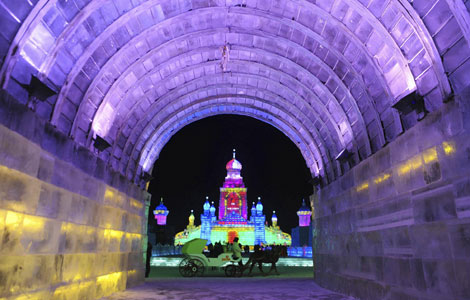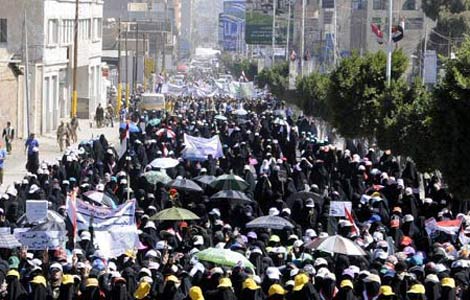Resilient China's economy helps lift all boats
Updated: 2011-12-26 10:12
(Xinhua)
|
|||||||||||
Aggressive developers
Not only the consumer brands are benefiting from China's growth. The trade promotion agency has urged Singapore firms to ride on the opportunities arising from the development of China's inland west regions.
CapitaLand, one of the largest developer in southeast Asia, recently led a consortium to win a bid to build a complex with a total investment of $3.3 billion in the southwestern city of Chongqing. The complex will be composed of eight buildings, including high-end residential units as well as a shopping mall. It will be designed by world-renowned architect Moshe Safdie, who has designed the landmark casino resorts Marina Bay Sands in Singapore.
The Chongqing project is one of the largest investments made by CapitaLand in China. It will have a gross floor area of 817,000 square meters, with about 41 percent being residential and the rest retail and offices.
To bet on such an investment, CapitaLand must have had no less than complete confidence in the city's economy, including the consumers.
Liew Mun Leong, chief executive of Capitaland, compared Chongqing to Chicago of the United States, saying that it is expected to catch up with the coastal cities soon. George Yeo, former foreign minister of Singapore, also saw potentials and excitement in Chongqing, the supercity with a provincial status in the vast China's western regions, despite all the imbalances it may have.
CapitaLand has begun its investments in China with projects in first-tier cities such as Shanghai and Beijing, and then gradually expanded from the south to the north and now from the country's coastal east to the inland west.
Speaking of the Chinese economy at a recent forum, Liew said that he has confidence in the Chinese market in the long term.
"Can you tell me one market that is better than China for us?" he said, repeating his words in a conversation with a friend one year ago.
CapitaLand expected its assets in China to increase to 42 to 45 percent over the next three to five years from 35 percent now. Singapore's contribution will fall from 35 percent to 33 percent.
Other companies are also stepping up their expansion in China. Business conglomerate Keppel has numerous utilities projects in China while developer UOL Group runs mall and office projects.
Hot Topics
HIV/AIDS, Egypt protest, Thanksgiving, climate change, global economic recovery, home prices, high-speed railways, school bus safety, Libya situation, Weekly photos
Editor's Picks

|

|

|

|

|

|







